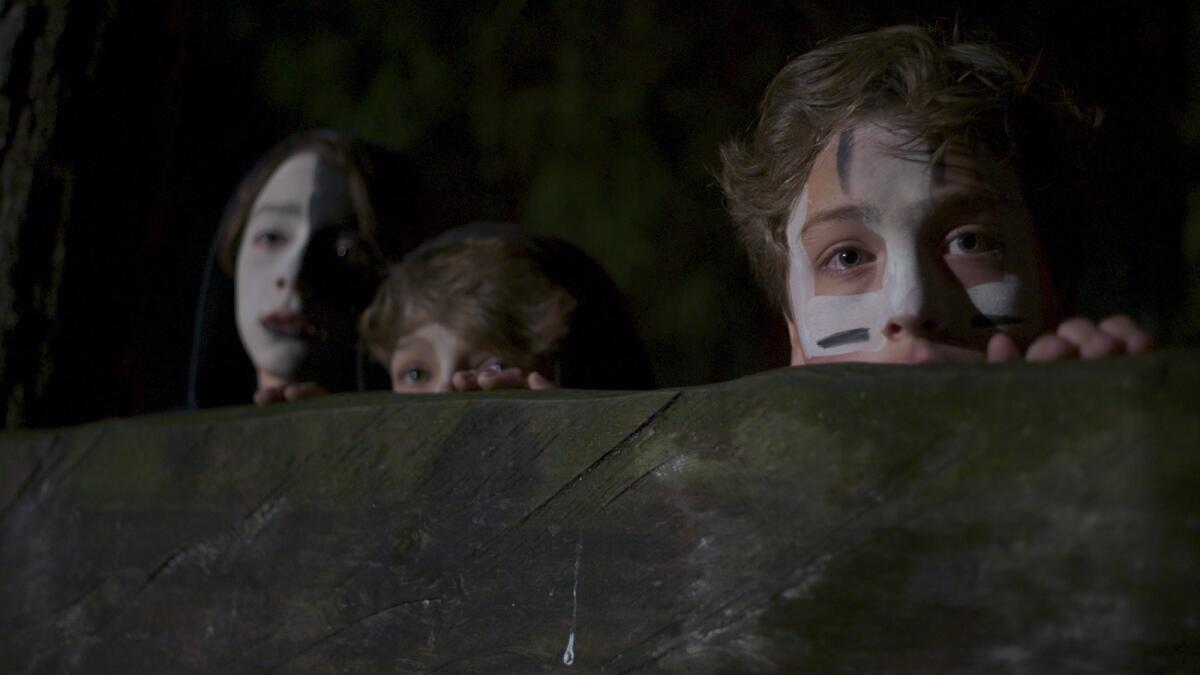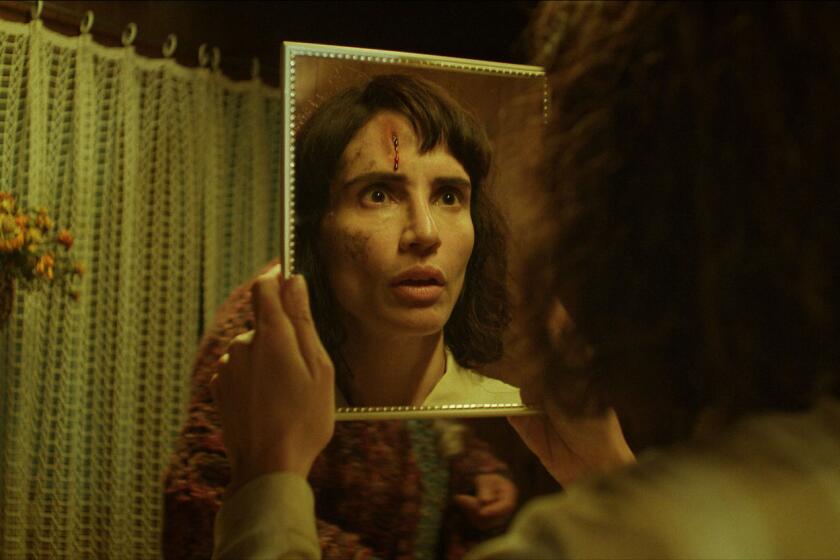A thorny reckoning lurks outside a Mexican boys school in ‘The Hole in the Fence’

- Share via
Postcard-perfect views paint a deceiving picture of peacefulness in the countryside around Los Pinos, a Catholic, male-only summer camp for the teenage sons of the conservative Mexican elite. Just beyond its gates, their instructors warn the boys, poverty and crime lurk. Taught to fear the humble local residents, they stay within the school limits.
Since class and race remain deeply intertwined in the power structures of Mexican society, it’s no surprise that the bulk of the wealthy adolescents have a pale white complexion — some even sport blonde hair. Their indoctrination into bigoted ideologies unfolds in “The Hole in the Fence,” an incisive coming-of-age drama from writer-director Joaquin del Paso.
From the rowdy group of students, a handful of them stand out. There’s Jordi (trans actor Valeria Lamm), a petulant bully accustomed to his malevolent deeds going unpunished, and Eduardo (Yubah Ortega), a dark-skinned, economically disadvantaged kid allowed in the institution thanks to a “benevolent” scholarship. He soon becomes target to racist attacks.
Paranoia spreads among the spoiled pack when someone or something from the outside dares make the eponymous hole in the fence that marks the territorial boundaries of the campus, symbolizing a perforation to the invisible shield of privilege that protects them.
When domineering professor Monteros (Enrique Lascurain) asks about the only intangible force that can keep them safe from the danger approaching, his pupils turn to money as their savior. That’s not the spiritual answer he expected, but it may be the most honest one.
Chilean filmmaker Francisca Alegria’s magical realist take infuses this cautionary environmental tale with hope.
Del Paso injects satirical undertones like this into his troubling narrative. As he exposes the perpetuation of prejudice as a means to preserve white patriarchal tribalism, the Mexican filmmaker, along with co-writer Lucy Pawlak, succeed at holding the upper crust accountable for their own behaviors and classist apprehensions rather than taking a both-sides approach.
Even if some of the frat house-like scenarios of abuse, where homophobia and violence abound among the young men, lack subtly, their visceral cruelty still unsettles. Eduardo begins mimicking the behaviors of his aggressors as an act of self-preservation, while Joaquin (Lucciano Kurti), whose sensitive disposition is seen as weakness, learns a warped sense of loyalty. It all happens under the supervision of the adults tasked with their growth.
While “The Hole in the Fence” initially seems to head toward the discovery of a culprit that will validate the fright instilled in the youths, a potent revelation, written between the lines, points to something even more insidious: the generational transfer of influence, status and outdated masculinity under the guise of religious righteousness by any means necessary.
With unnaturally rich colors, as if ripped from the illustrated pages of a sacred tome, the idyllic vistas captured by cinematographer Alfonso Herrera Salcedo (“A Love Song”) play into the film’s mordant tone, serving not as a truthful depiction of reality but a reflection of how this fraternal organization sees its domain as a holy paradise, untainted by the world.
Del Paso often opts for obvious imagery in an effort to question its meaning within the heightened context of his story. Close-ups of innocent animals turn into a frightening and evident metaphors. Early on, a tirade about the disturbing male-centric conducts of a bird species reads almost comically on the nose. The presence of these touches seems deliberate, as they distract us from predicting the twists that bring the horror full circle.
As tensions in the compound rise with the disappearance of one of the white teens, the ritualistic groupthink encouraged at Los Pinos yields abhorrent consequences. The mob mentality that rules here calls to mind Felipe Cazals’ seminal feature “Canoa,” about several university workers lynched by a town of impoverished peasants manipulated by a priest.
Armed with a perceptive ensemble cast, Del Paso formulates an intellectually rich critique on a thorny subject for a country still reluctant to face its entrenched moral vices.
‘The Hole in the Fence’
In Spanish with English subtitles
Not Rated
Running time: 1 hour, 42 minutes
Playing: Starts May 26, Laemmle Glendale
More to Read
Only good movies
Get the Indie Focus newsletter, Mark Olsen's weekly guide to the world of cinema.
You may occasionally receive promotional content from the Los Angeles Times.










